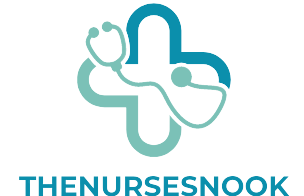Food allergies can be a frustrating and potentially life-threatening condition that affects millions of people worldwide. From mild discomfort to severe reactions, food allergies can have a significant impact on an individual’s quality of life. Understanding the symptoms, causes, and proper diagnosis of food allergies is essential for effective treatment and management. In this article, we will explore the various aspects of food allergies, including their symptoms, causes, and diagnosis. We will also discuss the different treatment options available, from medications to avoidance strategies, as well as provide helpful tips for living with food allergies and managing allergic reactions. Whether you or someone you know is affected by food allergies, this article aims to provide valuable information to help navigate and cope with this challenging condition.
1. “Understanding Food Allergies: Symptoms, Causes, and Diagnosis”
Food allergies are becoming increasingly common in today’s society, affecting millions of people worldwide. Understanding the symptoms, causes, and diagnosis of food allergies is essential for individuals who suffer from this condition and for those who are interested in learning more about it.
Symptoms of food allergies can vary greatly from person to person, but commonly include skin reactions such as itching, hives, or eczema, gastrointestinal issues like vomiting, diarrhea, or abdominal pain, and respiratory problems such as wheezing, coughing, or difficulty breathing. In severe cases, a food allergy can lead to a life-threatening condition known as anaphylaxis, which requires immediate medical attention.
The causes of food allergies are complex and can be influenced by a combination of genetic and environmental factors. While any food has the potential to trigger an allergic reaction, certain foods are more commonly associated with allergies. These include peanuts, tree nuts, shellfish, fish, eggs, milk, soy, and wheat. It is important to note that food intolerances and sensitivities are different from food allergies, as they do not involve the immune system.
Diagnosing a food allergy requires a comprehensive evaluation to determine the specific food or foods causing the allergic reaction. This often involves a thorough medical history, physical examination, and potentially further diagnostic tests. One of the most commonly used diagnostic tools is an oral food challenge, where a small amount of the suspected allergen is consumed under medical supervision to observe any adverse reactions.
Another diagnostic method is skin prick testing, where a small amount of the allergen is applied to the skin through a tiny puncture. If a person is allergic, a raised bump or wheal will appear at the site of the prick. Blood tests, such as the measurement of specific IgE antibodies, can also provide useful information in diagnosing food allergies.
Once a food allergy is diagnosed, the primary treatment is strict avoidance of the allergenic food. This involves reading food labels carefully, being mindful of cross-contamination risks, and seeking alternatives to allergenic ingredients. In severe cases, individuals may need to carry an epinephrine auto-injector, which can be used in case of anaphylactic reactions.
In recent years, researchers have been exploring potential treatments for food allergies, such as oral immunotherapy and allergy desensitization. These approaches involve gradually exposing the individual to increasing amounts of the allergenic food under medical supervision, with the goal of reducing or eliminating their allergic reactions. However, these treatments are still in the experimental stage and should only be undertaken with professional guidance.
You can find out more about this theme here: https://bbgate.com/threads/tmcp-indole-synthesis-ur-144-intermediate-cas-895152-66-6-large-scale.313/.
2. “Effective Treatment Options for Food Allergies: From Medications to Avoidance Strategies”
Food allergies can be a challenging condition to manage, but there are various treatment options available to help individuals effectively cope with their allergies. From medications to avoidance strategies, these treatment options aim to alleviate symptoms, prevent allergic reactions, and improve the overall quality of life for those affected by food allergies.
One of the most common treatment approaches for food allergies is the use of medications. Antihistamines, such as diphenhydramine and loratadine, are commonly prescribed to relieve mild to moderate allergic symptoms, such as itching, hives, and sneezing. These medications work by blocking the effects of histamine, a chemical released by the immune system during an allergic reaction. However, it’s important to note that antihistamines only provide temporary relief and do not prevent future allergic reactions.
In more severe cases, where individuals experience severe allergic reactions or anaphylaxis, the use of epinephrine auto-injectors becomes crucial. Epinephrine, also known as adrenaline, is a life-saving medication that can reverse the symptoms of severe allergic reactions by constricting blood vessels, opening airways, and improving blood circulation. Individuals at risk of anaphylaxis are often prescribed an epinephrine auto-injector, such as an EpiPen, which they can carry with them at all times for immediate use in case of an emergency.
In addition to medication, avoidance strategies play a vital role in managing food allergies. The most effective way to prevent an allergic reaction is to identify and avoid the specific food allergen. This requires careful reading of food labels, being aware of potential cross-contamination risks, and communicating food allergies to restaurant staff or when dining out. Some individuals may also benefit from working with a registered dietitian to develop a well-balanced and allergen-free diet plan.
For individuals with severe food allergies, allergen immunotherapy might be an option. This treatment involves gradually exposing the individual to small amounts of the allergen under medical supervision, with the aim of desensitizing the immune system over time. While still in the experimental stage for food allergies, allergen immunotherapy has shown promise in reducing the severity of allergic reactions in some individuals.
It is important to note that there is currently no cure for food allergies. Treatment options primarily focus on managing symptoms, preventing allergic reactions, and providing immediate relief during emergencies. Therefore, individuals with food allergies must remain vigilant, educate themselves and others about their condition, and always be prepared to take necessary precautions to avoid potential allergens.
In conclusion, effective treatment options for food allergies range from medications, such as antihistamines and
3. “Living with Food Allergies: Tips for Managing and Coping with Allergic Reactions”
Living with food allergies can be challenging, but with proper management and coping strategies, individuals can lead a safe and fulfilling life. Here are some tips to help manage and cope with allergic reactions:
1. Identify and Avoid Trigger Foods: The first step in managing food allergies is to identify the specific foods that trigger allergic reactions. Consulting with a healthcare professional, such as an allergist, can help determine the allergens through various tests, including skin prick tests or blood tests. Once identified, it is crucial to avoid these trigger foods completely. Reading food labels carefully, asking about ingredients in restaurants, and being cautious about cross-contamination in food preparation can significantly reduce the risk of accidental exposure.
2. Create an Emergency Action Plan: Developing an emergency action plan is essential, especially for severe allergic reactions known as anaphylaxis. This plan should include clear instructions on how to recognize the symptoms of anaphylaxis, such as difficulty breathing, swelling, or a drop in blood pressure, and steps to take in case of an emergency, such as using an epinephrine auto-injector (commonly known as EpiPen) and seeking immediate medical help. Make sure to share this plan with family members, friends, and coworkers, so they are aware of what to do in case of an allergic reaction.
3. Carry Medications at All Times: Individuals with food allergies should always carry their prescribed emergency medication, such as EpiPen, with them. This ensures they can promptly administer life-saving treatment if an allergic reaction occurs. Additionally, it might be helpful to have antihistamines, such as Benadryl, on hand to alleviate mild allergic symptoms. Keeping these medications easily accessible can provide peace of mind and be crucial during emergencies.
4. Educate Yourself and Others: Educating oneself about food allergies is crucial for managing and coping with them effectively. Stay informed about the latest research, treatment options, and potential cross-reactivity between different allergens. It is equally important to educate family members, friends, and others in your social circle about food allergies. Teach them how to read food labels, recognize symptoms of an allergic reaction, and respond appropriately in case of an emergency. Increasing awareness can create a supportive and safe environment for individuals with food allergies.
5. Seek Support and Connect with Others: Dealing with food allergies can be emotionally challenging. Connecting with support groups, both online and offline, can provide a sense of belonging and understanding. These groups can offer valuable advice, share experiences, and provide emotional support. Additionally, consider joining allergy-related organizations or attending events where you can meet others living with food allergies. Sharing experiences



